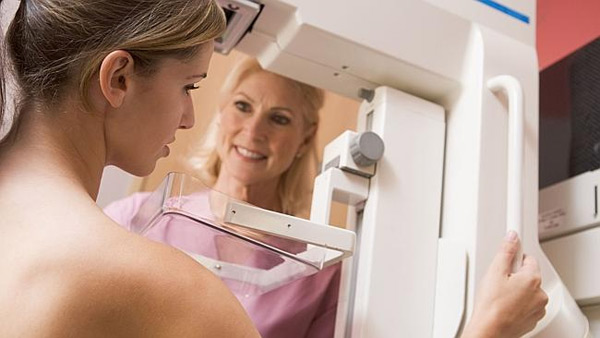
A pair of Yale Cancer Center interventional studies involving breast cancer survivors found that lifestyle changes in the form of healthy eating and regular exercise can decrease biomarkers related to breast cancer recurrence and mortality. The abstracts are scheduled to be presented at the 2014 annual meeting of the American Society of Clinical Oncology in Chicago May 30-June 3rd.
“The findings of both studies support a growing body of research that suggests lifestyle interventions lower biomarkers associated with breast cancer recurrence and mortality, and improve quality of life,” said Melinda Irwin, PhD, co-program leader of the Cancer Prevention and Control Research Program at Yale Cancer Center, associate professor of Epidemiology at Yale School of Public Health, and principal investigator on both studies.
The abstracts are below.
Effect of weight loss intervention on inflammatory and metabolic markers in breast cancer survivors. The lifestyle, exercise, and nutrition (LEAN) study.
In this study, obese or overweight women were randomized into two groups — those who received weight loss and exercise counseling — and a usual care group that received a brochure about lifestyle changes. After six months, women in the weight loss counseling group experienced an approximate 30% decrease in C-reactive protein (CRP) levels compared with a minimal decrease in women randomized to the usual care group. CRP is a marker of chronic inflammation and higher CRP levels have been associated with a higher risk of breast cancer mortality. A dose-response effect was found in women randomized to weight loss counseling in that women who lost at least 5% body weight experienced an approximate 22% decrease in insulin, 38% decrease in leptin, and 55% decrease in CRP, compared to significantly less biomarker improvement in women randomized to weight loss who lost less than 5% body weight.
Effect of exercise on weight, body fat, and serum inflammatory biomarkers in breast cancer survivors with aromatase inhibitor arthralgias (joint pain): The hormones and physical exercise (HOPE) study.
The HOPE study looked at the effect of exercise on body weight, body fat, and inflammatory biomarkers in 121 women with joint pain from taking aromatase inhibitors (AI) as adjuvant therapy. Participants were randomized into two groups — those who participated in twice-weekly strength training and 2.5 hr/wk of moderate-intensive aerobic exercise — and those who did no exercise (control group). After 12 months, the study found that the exercise group experienced an approximate 3% weight and body fat loss, and 6% decrease in CRP levels compared to increases in the control group.
Previous findings from the HOPE study showed exercise improved AI-associated joint pain, but results from this analysis of favorable decreases in body weight, fat and CRP found these markers did not mediate the beneficial effect of exercise on AI joint pain. Further HOPE analyses will be conducted to determine the mechanism(s) of how exercise improves AI joint pain.
The study done by Yale University.